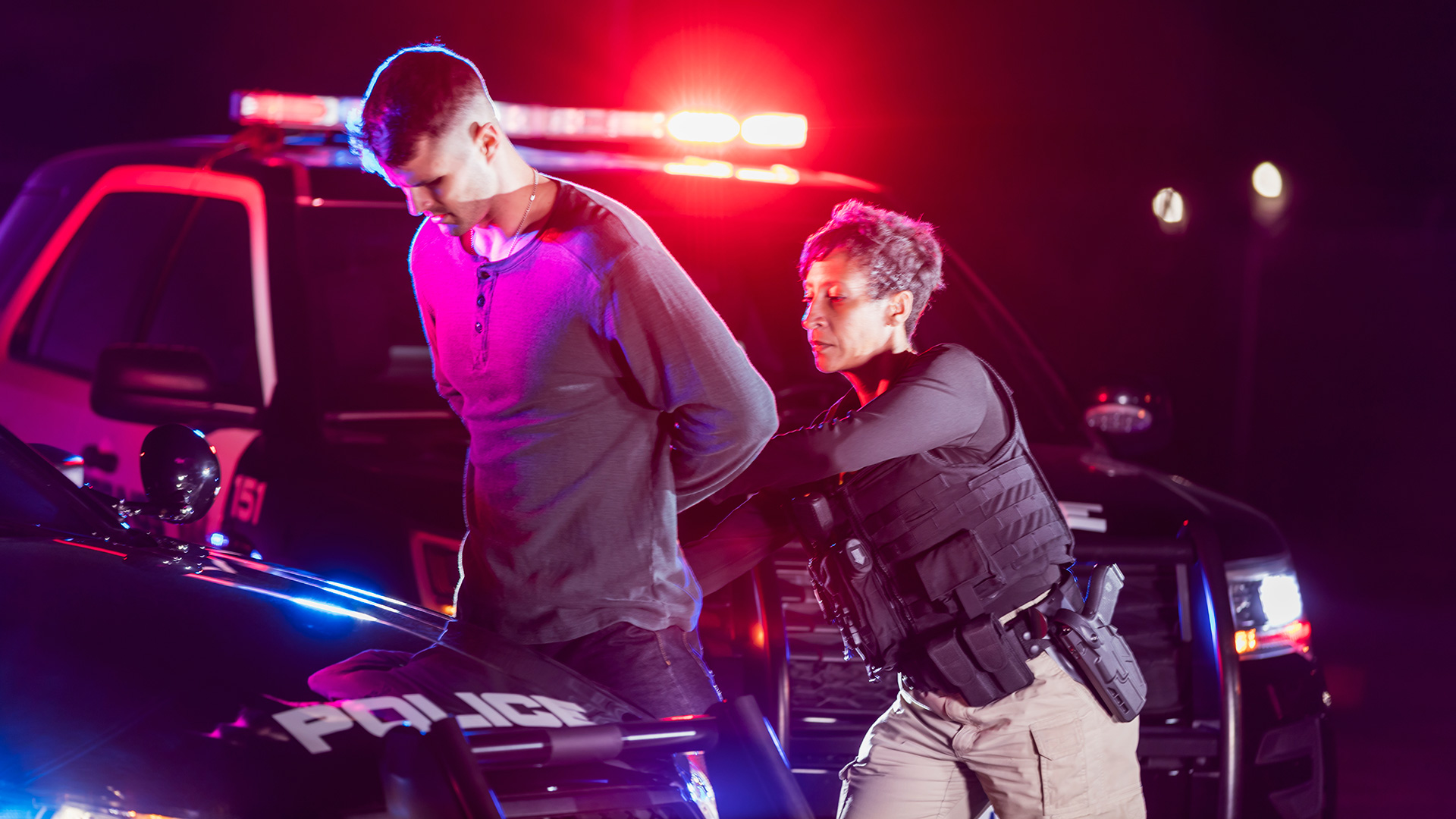
Why do we still do what we do? I know several officers during the past year who left law enforcement because they simply had enough of the pervasive anti-law-enforcement rhetoric. Unfortunately, they were good officers whom I had personally trained.
On a recent Friday afternoon, clad in my deputy sheriff uniform, I drove my Dodge Charger to a residence to serve an important civil paper. Across the street was an elementary school bustling with activity during recess.
I pulled into the driveway and had no sooner extricated my 6-foot, 5-inch frame from my Charger when I heard it: a hullabaloo of sound coming from a group of children jumping up and down and waving their arms from the school yard across the street. Their voices soon began to mesh and I was able to hear what they were shouting.
“Hi, Mr. Officer! Hi! Thank you for protecting us! Thank you! Thank you!” On it went until I heard one little voice rise above the others, “We love you, Mr. Officer.” As I jumped up and down, waving my arms and yelling “Thank you” in return, I was suddenly reminded why we still do what we do.
I write this article today in defense of my profession. I still believe that we’re the good guys. We aren’t perfect. Never have been, never will be. We’re human, after all. We must often make decisions quickly, in extremely demanding circumstances.
Every day, the vast majority of police–citizen contacts are performed lawfully. The officers are respectful, and the rights of citizens are defended. It’s unfortunate that we rarely see those encounters posted on YouTube.
The accusation that our profession is corrupt and out of control can be quickly dispelled by asking any officer this question: Do you want to be sued, lose your job or go to jail? How many would respond, “Oh yes! That’s exactly why I got into this line of work! Maybe today’s my lucky day?” My educated guess would be none.
So how can I use my expertise in search and seizure and use-of-force training, as well as several years of research, to help prevent officers from making mistakes? I’ve got a good idea where I can begin.
“Officer, am I being detained or am I free to go?” More officers are hearing this question all the time. However, the importance of correctly answering this question is perhaps greater now than ever. An incorrect answer could lead to a situation I call officer-induced escalation and fertile ground for yet another YouTube video depicting a “bad” officer.
What is officer-induced escalation? Great question. Officer-induced escalation typically begins when an officer stops and detains a citizen without reasonable suspicion of crime, followed by the almost inevitable demand to see the citizen’s identification. If the citizen rightfully questions why they are being detained or need to produce identification, an officer might escalate the contact by performing an unlawful frisk. From this point, the contact could quickly devolve into a false or retaliatory arrest, followed by some level of force. During the entire contact, the citizen had done nothing wrong.
Officer-induced escalation can be significantly reduced with non-escalation training. I specialize in the development and training of non-escalation skills, and have found that it is the best and most efficient way to prevent officer-
induced escalation. Non-escalation training instructs officers to apply their authority lawfully throughout every step of a police–citizen contact, and focuses on how not to perform an illegal stop, frisk, arrest or application of force. For this article, I’ll concentrate on preventing the practice of unlawful stops only. My research has identified six common ways officers perform unlawful stops and detentions.
Acting on a hunch or gut feeling, or to conduct a fishing expedition, is the first way an officer might make a bad stop. Reasonable suspicion of crime must be based upon a particularized and articulated suspicion of a specific crime or crimes.
For example, an officer receives a call about a person open-carrying a firearm. The subject of the call is open-carrying where it is permitted and is not doing anything illegal. A responding officer may ask themself, “Hmmm, I wonder if this person with a gun is a convicted felon or has warrants? I’ll find out by requiring him to show identification.”
In these circumstances, without reasonable suspicion of a crime or particularized reasonable suspicion that the subject is a convicted felon or has warrants, the officer is conducting a fishing expedition, and exposes him or herself to a possible civil rights violation.
“People are calling us about you” or “We got a call for service” is the second way an officer might stop and detain someone unlawfully. Again, there must be a particularized and articulable reasonable suspicion of crime connected to what people are calling about. Merely receiving a “call for service” with nothing more behind it is an unlawful reason to stop and detain someone.
The third and perhaps most common way an officer performs an unlawful stop occurs during a response to “suspicious person” calls. The bottom line is, mere suspicion alone does not rise to reasonable suspicion of crime. Under the totality of the circumstances, it is imperative that officers don’t confuse the highly subjective “suspicious activity” with articulable reasonable suspicion of crime.
The fourth way leading to an unlawful stop and detention occurs when an officer or citizen just doesn’t like what someone is doing. An example is when citizens record officers on the job. Some simply don’t like being recorded and will perform an unlawful detention as a result.
The fifth way an officer performs an unlawful stop is not easy to explain, but here’s how it typically unfolds. After receiving a call, an officer arrives on scene and immediately detains a person without reasonable suspicion of crime until they can figure out what’s going on. When asked what crime they are investigating, the officer typically answers, “I didn’t say there was a crime. I’m performing an investigation to see if there is one.” An officer should know if reasonable suspicion legitimately exists before they arrive on scene and make contact.
That brings us to the sixth and final reason an officer may perform an unlawful stop and detention. A person cannot be lawfully stopped and detained based upon a “happenstance of geography.” Simply occupying an area known for criminal activity, without unprovoked flight at the sight of uniformed police, does not rise to reasonable suspicion of crime to stop and detain. Reasonable suspicion must be particularized and articulable to a certain vehicle or person and not just a geographic area.
I wish to remind officers that it is perfectly legal to conduct a consensual contact in the situations I’ve described. It’s also not wrong for an officer to ask for identification during a consensual contact as long as the officer knows that he or she doesn’t have the authority to compel the person to identify.
However, seizing someone by stopping and detaining them in violation of their Fourth Amendment rights is a serious matter, and the reason officers and agencies are sued and officers are fired.
The benefits of non-escalation training are immediate. When I train officers in building their non-escalation skills, I see the light bulbs go on. Every training I hold, officers come up to me and ask, “How come nobody’s ever taught me this before?”
Defeating officer-induced escalation is more important now than ever before. Preventing unlawful stops, frisks, arrests and applications of force is the focus of non-escalation training and can be powerful medicine for agencies and officers who are determined to do the right thing.
In closing, I’d like to thank my fellow officers for their service and for wanting to do what’s right. I also want to thank that group of elementary school children for innocently expressing their appreciation for us. They, and countless other Americans, are the reason why we still do what we do, because we are the good guys.
As seen in the April 2021 issue of American Police Beat magazine.
Don’t miss out on another issue today! Click below:






